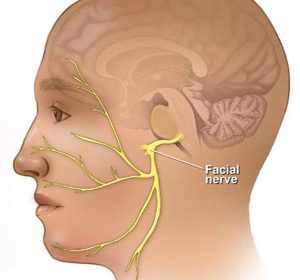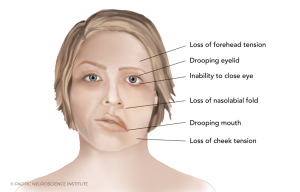Introduction
Hunter syndrome, also referred to as mucopolysaccharidosis II (MPS II), is a rare genetic disorder that primarily affects boys. This comprehensive guide aims to provide a detailed understanding of the causes, symptoms, diagnosis, treatments, and ongoing research related to this complex condition.
Causes of Hunter Syndrome
- Genetic Inheritance: Boys with Hunter syndrome face challenges in producing a specific protein due to a genetic anomaly inherited from their mother.
- Transmission: A father can pass the problematic gene to his daughter, but she won’t develop the disease unless she inherits the gene from her mother.
- Rare Cases: In exceptional situations, individuals may develop Hunter syndrome without a familial history of the disorder.

Symptoms in Detail
Hunter syndrome manifests in a variety of ways, impacting different aspects of a child’s health:
- Physical Appearance:
- Large, round cheeks
- Broad nose
- Thick lips and a large tongue
- Bushy eyebrows
- Large head
- Slowed growth
- Thick, tough skin
- Short, broad hands with stiff, curled fingers
- Other Common Symptoms:
- Joint problems affecting mobility
- Numbness, weakness, and tingling in hands
- Frequent coughs, colds, and respiratory infections
- Breathing problems, including sleep apnea
- Hearing loss and ear infections
- Impaired walking and weak muscles
- Bowel problems, such as diarrhea
- Heart problems, including damaged heart valves
- Enlarged liver and spleen
- Bone thickening
- Brain Involvement:
- Cognitive challenges emerging between 2 to 4 years
- Speech difficulties
- Behavioral problems, such as restlessness or aggression
Despite these challenges, children with Hunter syndrome often display cheerful and affectionate behavior.

Getting a Diagnosis
Diagnosing Hunter syndrome involves a meticulous process:
- Ruling Out Other Conditions: Doctors explore alternative medical conditions before considering Hunter syndrome.
- Key Questions: Patients are asked specific questions about symptoms, their onset, and family medical history.
- Diagnostic Tests: Tests include checking for high sugar levels in urine, assessing protein activity in blood or skin cells, and genetic testing.
- Family Awareness: Extended family members are informed about the genetic issue once the diagnosis is confirmed.
Questions for Your Doctor
This section provides a set of questions to facilitate meaningful discussions with healthcare professionals. Topics include the evolution of symptoms, treatment options, potential side effects, monitoring progress, and recommendations for involving specialists.

Treatment Strategies
Early intervention is crucial in managing Treatment options include:
- Enzyme Replacement Therapy (ERT):
- Effective for boys with milder forms of Hunter syndrome.
- Improves mobility, breathing, growth, and facial features.
- Does not address the disease’s impact on the brain.
- Transplants:
- Bone marrow and umbilical cord blood transplants are considered high-risk options.
- Utilized when other treatments are not feasible.
- Not proven effective for cases where the brain is affected.

Research and Future Prospects
Ongoing research endeavors aim to discover more effective treatments, particularly for severe cases of Hunter syndrome. Collaborative efforts involving various specialists continue to shape the landscape of managing this rare genetic disorder.
Conclusion
Understanding Hunter syndrome is paramount for affected families. This in-depth guide provides insights into the causes, symptoms, diagnosis, and treatment options, offering a comprehensive resource for individuals navigating the complexities of this rare genetic disorder.




